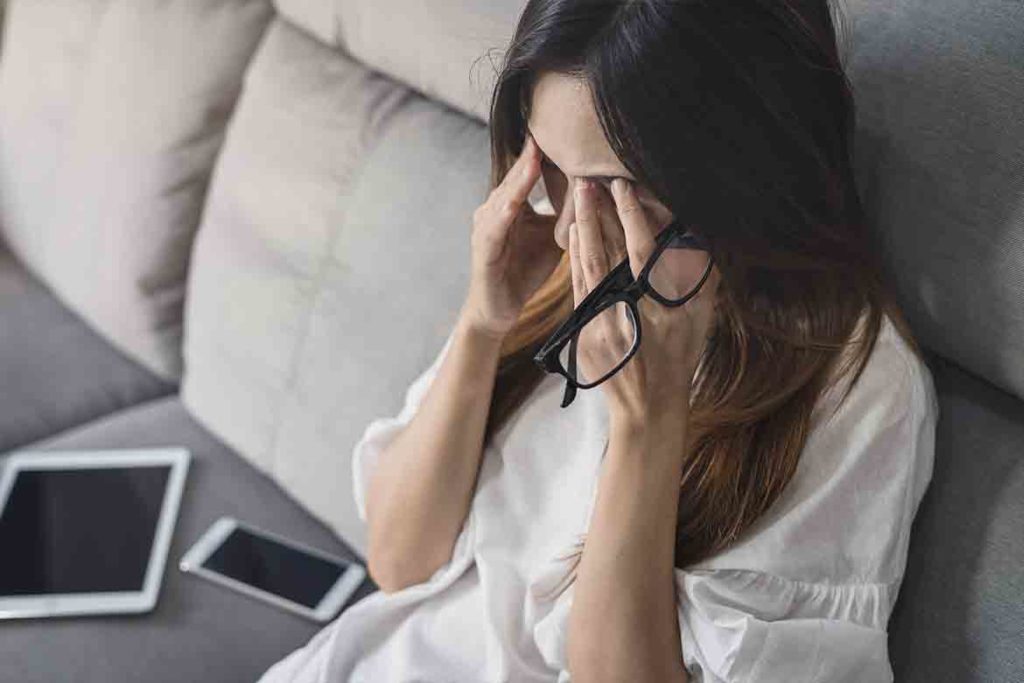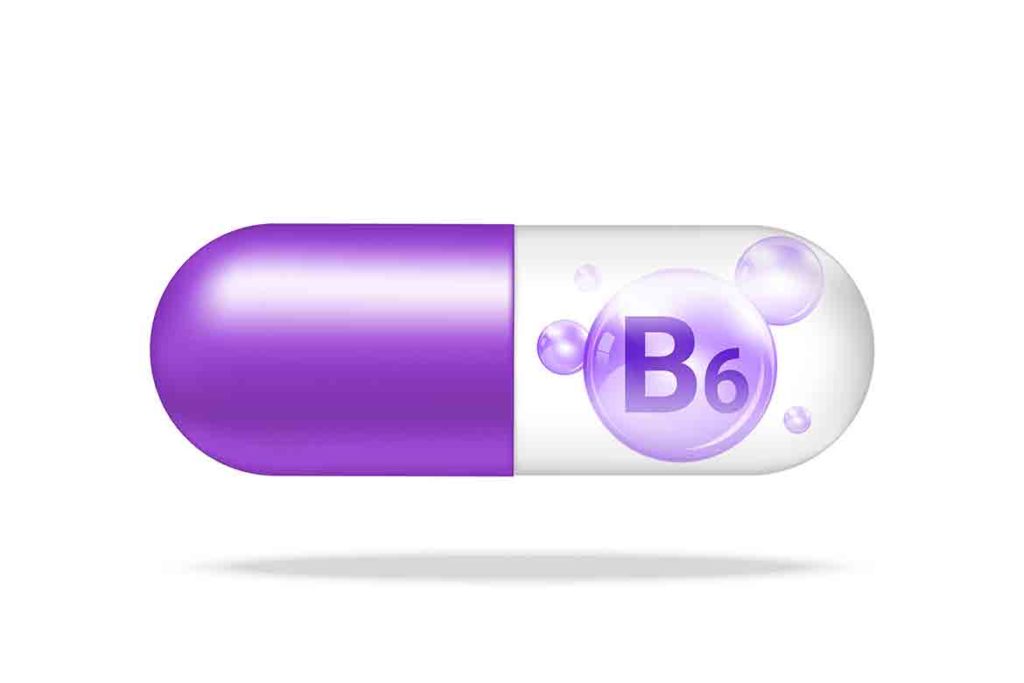Premenstrual syndrome / PMS is a condition that happens during certain days of a woman’s menstrual cycle. Women generally experience this 1 or 2 week before menstruation starts. Every woman experiences different symptoms. These depend on their emotional, physical health and behavior.
PMS is a common state in women because of the hormonal changes in ones body and that of Serotonin levels. It is also believed that the increased levels of estrogen and progesterone during these times can cause mood swings, anxiety etc. PMS can also lead to many mood disorders if not kept in check.
PMS can be less disturbing for many of us but some may have severe symptoms changing some aspects of our life and it feels like roller coaster of emotions.
SYMPTOMS OF PMS
One may experience many physical as well as emotional symptoms. According to the American Family Physician, 60-70 percent of women report one or more symptoms which generally do not affect their life on day-to-day basis.
While 20-30% may experience moderate to severe symptoms affecting their daily routine, a small percentage of 3-8% may cause a condition known as Premenstrual Dysphoric Disorder abbreviated as PMDD. PMDD causes depression, or anxiety starting from a week or two before menstruation starts. These symptoms usually go away after the start of menstruation.

Some of the symptoms can be-
- Bloating
- Food cravings
- Acne usually on face
- Headaches
- Sore breasts
- Feeling tired / low energy
- Change in sleep cycle
- Sadness
- Anger
- Anxiety
- Crying
- Depression
- Emotional outburst
- Abdominal pain
- Trouble focusing
- Over-sensitivity
- Irritation
- Crying
TREATMENT / CHECKING
For many women, changes in lifestyle and day-to-day activities can prove to be very helpful. On the contrary, some with severe symptoms may also need medical assistance.
Consulting a good doctor would thus, be helpful in severe cases. They would prescribe you with anti-depressants that change serotonin levels. This has definitely shown results in most cases.
Some ways you can cope up with PMS are as follows –
Track your Cycle
Keep track of your cycle, whether you experience mild or severe symptoms. You will notice the symptoms are linked to different stages of your cycle. You feel confident whenever you try to talk to someone about your symptoms. Tracking can also prove to be helpful when you consult a doctor for PMS.
You can track your cycle using different period-tracking apps on your phone. Look for the one which allows you to check different symptoms. You can make a chart of your own. It can include the different moods you experience in a cycle.
Meal plans
Try modifying your meals as you may need good amounts of vitamins and minerals these times. A woman needs good amounts of essential vitamins generally present in breakfast cereals. Foods like milk, yogurt, cheese, leafy green vegetables and fortified oranges can provide a good amount of Calcium. Supplements could also work.
Include fish, chicken and fruits as they contain Vitamin B6. Eat almonds they are a rich source of Magnesium, a very important mineral for our body. Also avoid consumption of sweet because sweets make you irritable. Also, divide your meals into small portions instead of consuming in bulk.
This helps in maintaining sugar levels and prevents sudden sugar rush which can definitely worsen PMS symptoms.
Birth control

Hormonal birth controls can prove to be helpful with most of the symptoms of PMS for some, but it can also worsen the mood swings for others. If you are looking at this remedy, you might have to try different types to make sure which works for you. Birth control eases symptoms like mood swings, breast soreness, bloating and acne. Hormonal birth controls balance the in-body hormone changes. It thus supports your body in a way.
Sleep Pattern
Sleep patters are disturbed widely due to any slight changes in your body or around you. Sleeping for at least 8 hours a day can help maintain freshness and reduce tiredness. Poor sleep is also linked to obesity alter hormone levels even more.
Around 50-80 percent of adults with short sleep patterns are more likely to develop obesity. Sleep deprivation disturbs appetite hormones causing consumption of higher amount of calories. Poor sleep can also decrease concentration and productivity of an individual. Sleep can also impact brain functioning similar to ones caused by alcohol consumption.
Be active and practice yoga instead of heavy workouts –

Try aerobic exercises, which keep the heart pumping. It also eases other emotions and lets you be fresh. Try being out for 30 minutes a day. Being active releases endorphin’s generally released during physical activities, which can lift moods and improve emotional well- being. You can try jogging, dancing, zumba, swimming or even walking.
If not with other symptoms of PMS, it helps release stress and be fit. Usually un-managed stress invites unpleasant moods and thoughts even more. If you exercise, avoid heavy workouts and include yoga in your drills. Yoga helps with cramps, bloating and keeps you calm. Meditation can also help, meditation increases focus and keeps your mind peaceful to think about different things.
Limit alcohol, caffeine and smoking (worst thing to be around during PMS)
One should avoid Caffeinated drinks during these days because it can trigger and increase anxiety, sadness and insomnia. During this time, alcohol can act as a depressant, so avoid consuming alcohol also. One should quit smoking as it is believed that the women who smoke are more prone to moderate or severe PMS symptoms.
The reasons are still not clear but a study of 10 yrs of health data shows these results and one avoid or quit smoking.
Try to relax and pamper yourself (PMS is bound to rile you up)
Sit comfortably and practicing breathing exercise may help you be calm and relieve stress. Meditation for 30 mins or treating yourself with a SPA day will help you relax. Pampering yourself with good and healthy meal, a massage, acupuncture also helps in easing symptoms of PMS.
Take supplements

Researchers have found certain fatty acids like Omega-3 can prove to be helpful. 500 – 1,200 mg of calcium intake is found effective in reduction of PMS symptoms. Vitamin B6 might also help with the psychological symptoms. Taking Vitamin D and Folic Acid can support and ease your symptoms too.
Seek support
Keeping everything inside instead of sharing doesn’t help. You should seek support from people around you. Share your emotions with your loved ones or other women. Try new tips and treatment ideas for PMS and other menstrual disorders. Join groups about PMS management can be educational. Online support groups also discuss about this and likewise you can meet face-to-face.
Consult a therapist (PMS is a Medical Condition)
Consulting medical assistance and a therapist can prove to be helpful. This also helps you understand the severity, if any. Cognitive therapy works on negative thought patterns. Consulting a therapist for lifestyle changes and betterment of mental health by dealing with negative thoughts can counter menstrual disorders on a better level.
Doctors generally prescribe you with Selective Serotonin Reuptake Inhibitor anti- depressants, abbreviated as SSRI. These medications increase serotonin levels in your brain and thus, help in preventing anxiety, depression etc. The doses are decided according to severity of ones symptoms.
PMS is a recurring condition therefore one needs to be more careful about its treatments and measures to be taken to maintain a healthy mental and physical life.
These are some treatments that can definitely help you keep your emotions in check during PMS. If you feel severe ones, know that it can affect your body more than you think. In this case, do consult a doctor. Also, do not take any medication without consulting your doctor. Talking about your problems always helps you find new solutions. Comment if you found this article helpful.
STAY HEALTHY
Get More Health Updates and News
